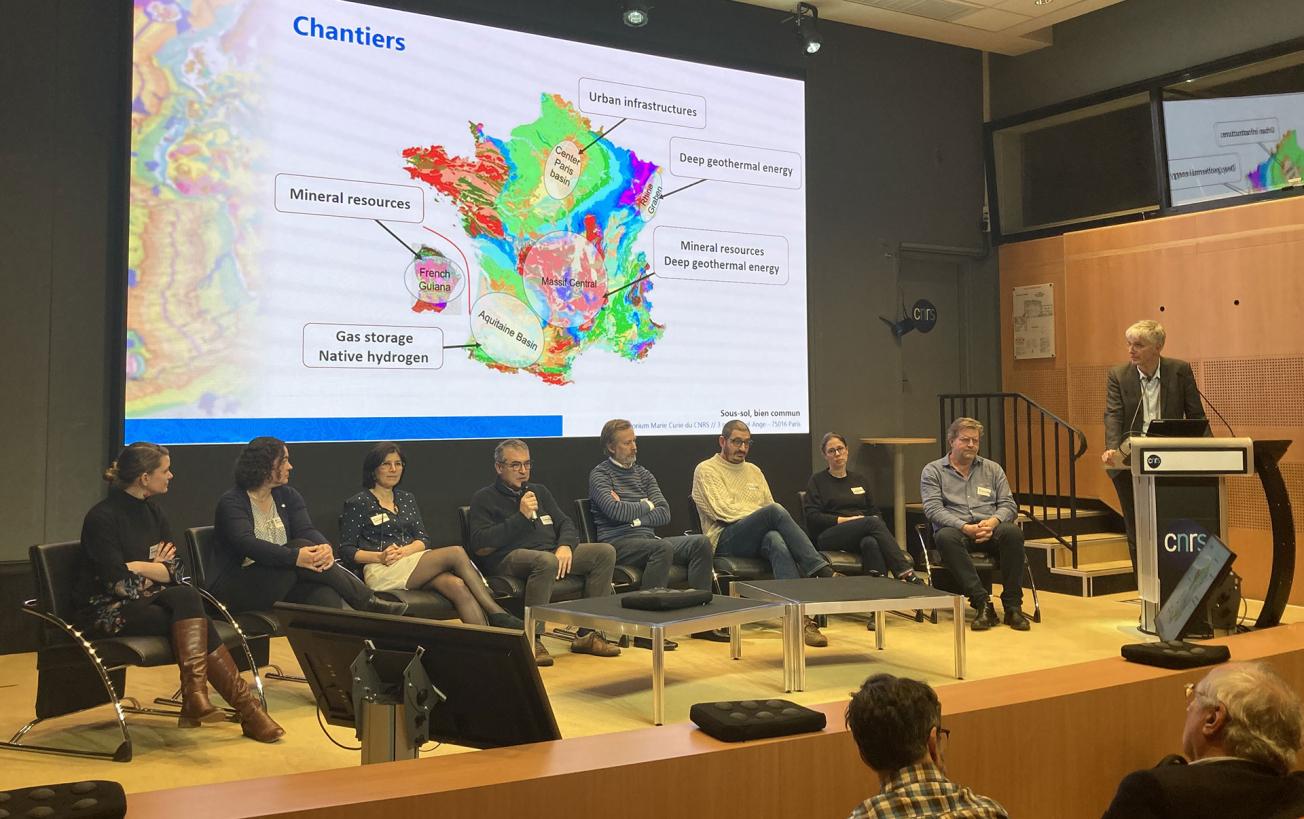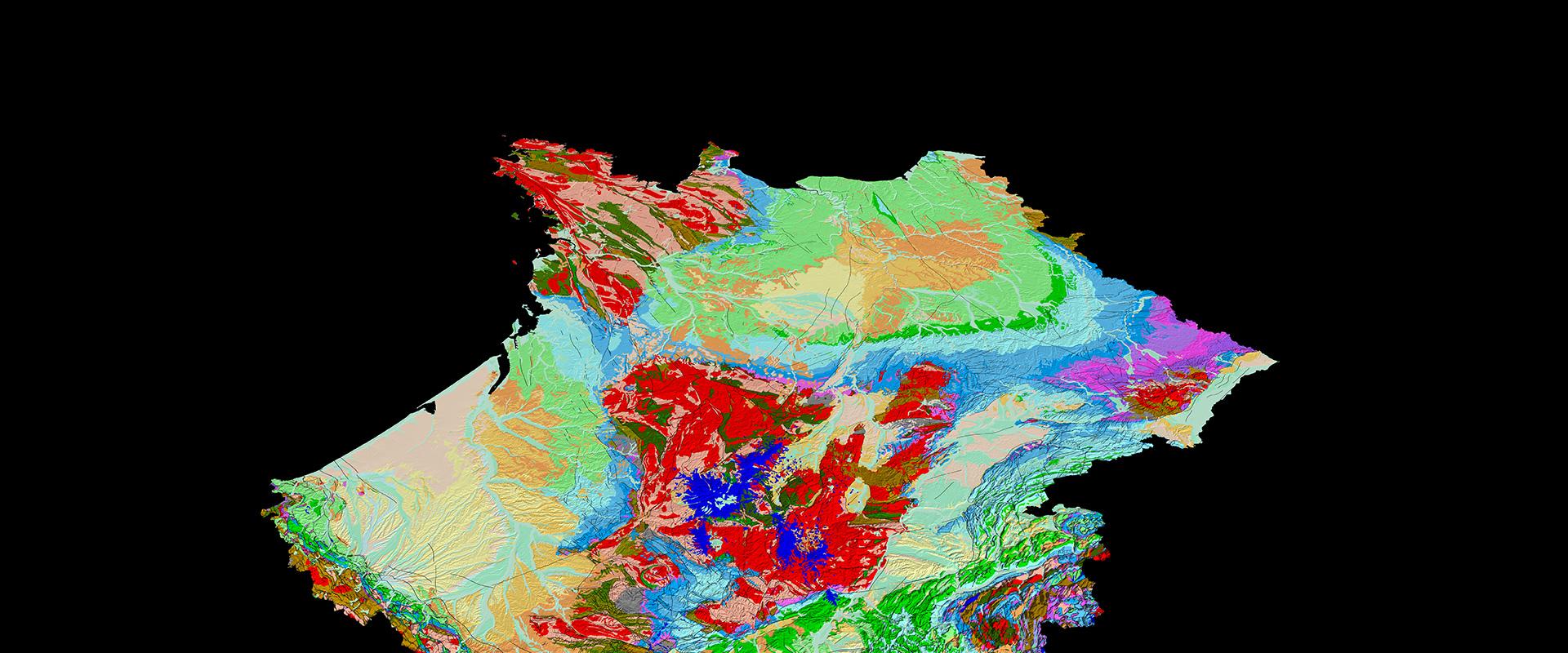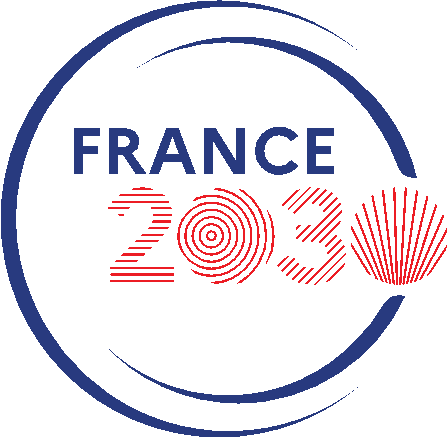
Launching meeting of the PEPR “The Subsurface, a Common Good” in Paris at the CNRS headquarters, on 13 February 2023.
© BRGM
The subsurface is a reservoir of mineral resources and fossil fuels, whose exploitation can contribute to climate change, but which can also be part of the solution to these changes. From storage to production of geothermal energy, from the extraction of materials for the energy transition to the underground storage of CO2 or hydrogen, the subsurface holds key challenges for our future. It also covers the foundations on which our infrastructures are built, and the water reserves that are essential to life. How may it be used for the energy transition?
The "Subsurface, a Common Good" programme, launched on 13 February 2023, aims to address this issue as a whole to attain a more integrated vision of the underground world. Its ambition is to identify and anticipate the possible uses of the French subsurface and better characterise its potential. Led jointly by BRGM and CNRS, in conjunction with several other academic partners, it is being funded with a budget of 71.4 million euros, to be spent over seven years, as part of the “France 2030” plan.
5 priority uses of the subsurface and 5 study sites
Five priority subsurface uses have been identified:
- mineral resources,
- deep geothermal resources,
- storage of various gases such as CO2, hydrogen or methane,
- research on native hydrogen,
- urban infrastructures.
And five specific study sites have been targeted:
- the centre of the Paris Basin (reflecting most of the socio-economic challenges in terms of urban subsurface management),
- French Guiana (for conflicts of use in regional development),
- the “Rhine Graben” (for its deep geothermal potential),
- the Aquitaine basin (for the storage of emerging geo-resources and energy uses),
- the Massif Central (for its mineral and geothermal potential).
For each of these uses, scientists will analyse the potential and model future national demand, as well as the conditions and impacts of possible exploitation. The programme should also help develop new exploration and exploitation technologies, better integrate environmental constraints, take greater account of social and economic issues, and improve governance and legal instruments.
Exploratory PEPRs: structuring research around emerging fields of interest
Developed as part of the France 2030 plan to boost research and innovation, the exploratory PEPRs target scientific and technological sectors that are considered to be emerging, for which the French government would like to structure the community of researchers. The purpose is to explore scientific fields that will hopefully have multiple spin-offs. On 18 July 2022, the Ministry of Higher Education and Research (MESR) and the Secretary General for Investment (SGPI) announced the selection (by the French National Research Agency) of the exploratory SOUSSOL programme on the subsurface. CNRS and BRGM were chosen to lead the programme. They are also leading with other institutions the “Water as a Common Good” and IRiMa (natural and technological risks) PEPR programmes, in collaboration with academic partners (Ineris, CEA, Cerema, Ifpen, Ifremer, Inrae, Inrap, Inria, IRD, MNHN, and the Universities of Aix-Marseille, Besançon, Bordeaux, Chambéry, Clermont-Ferrand, Dijon, Grenoble, Guyana, Lille, Limoges, Lorraine, Lyon, Montpellier, Nantes, Nice, Orléans, Paris, Pau, Poitiers, Rennes, Strasbourg and Toulouse).
Press contact









